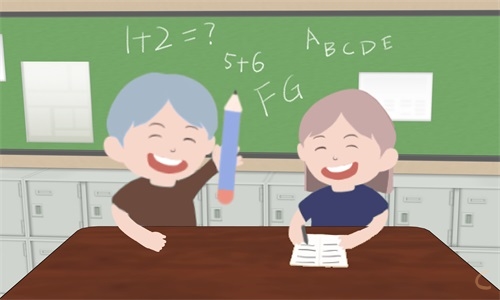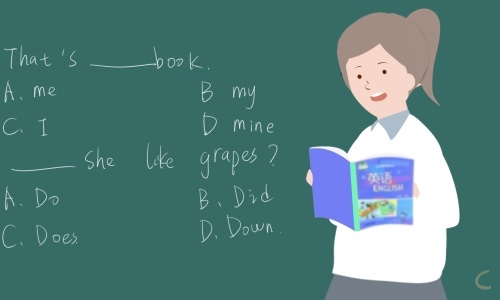高考英语必考知识点有哪些
高三年级与高一高二不同之处在于,此时复习力学部分知识是为了更好的与高考考纲相结合,尤其水平中等或中等偏下的学生,此时需要进行查漏补缺,但也需要同时提升能力,填补知识、技能的空白。下面小编为大家带来高考英语必考知识点,希望对您有所帮助!

高考英语必考知识点
be / get / become used to 习惯于
be given to 喜欢;癖好
be related to 与…有关系
be addicted to 沉溺于;对…上瘾
be opposed to 反对
devote oneself to献身于;专心于
be devoted to 致力于;忠诚于
be admitted to 被…录取;准进入
be reduced to 沦为
reduce…to…使…沦为
be attached to附属于;喜欢;依恋
be adjusted to 适应
be known to 为…所知
be married to 和…结婚
be connected to 和…连在一起
be compared to 被比喻成
compare… to…把…比作…
be engaged to 与…订婚
高考英语复习知识点
一、一般过去将来时
1.概念:立足于过去某一时刻,从过去看将来,常用于宾语从句中。
2.时间状语:The next day (morning, year…),the following month(week…),etc.
3.基本结构:主语+was/were +going to + do+其它;主语+would/should + do+其它
4.否定形式:主语+was/were+not + going to + do; 主语+would/should + not + do.
5.一般疑问句:was或were放于句首;would/should 提到句首。
6.例句:He said he would go to Beijing the next day.他说他第二天要去北京。
I asked who was going there.我问,谁要去那里。
二、 现在进行时
1.概念:表示现阶段或说话时正在进行的动作及行为。
2.时间状语:Now, at this time, days, etc. look. listen
3.基本结构:主语+be +doing +其它
4.否定形式:主语+be +not +doing+其它
5.一般疑问句:把be动词放于句首。
6.例句:How are you feeling today?你今天感觉如何?
He is doing well in his lessons.在课上他表现得很好。
高考英语知识点
用固定的情态动词表示的虚拟语气
1. should +动词原形(有时省略should)
(1)用在动词如advise, command, demand, desire, insist, order, propose, recommend, request, require, suggest, urge等后的宾语从句中。例如:
1)They requested that we (should) send a delegation to their country.
2)She urged that he write and accept the post.
(2)用在it is suggested, it is desired, it is required, it was ordered, it was proposed, it has been decided, it is necessary (essential, imperative, important, desirable) that等引出的.主语从句中。例如:
1)It is desired that we (should) get everything ready by tonight.
2)It is necessary that the teacher (should) have a thorough knowledge of the subject he teaches.
(3)用在suggestion, motion, proposal, order, recommendation, plan, idea, requirement等引起的表语从句和同位语从句
例如:He put his coat over the child lest he should catch cold.
高考英语知识点归纳
(1)—How about coming to my house?
—I’d love to if it doesn’t give you so much trouble.
在hope, like, love, promise, want, wish等词后作宾语的不定式常省略。再如:
You may go if you want to.
She can get a job if she hopes to.
—How about going hunting with me tomorrow?
—I’d like to, but I have no time.
(2)Don’t close the window until I ask you to.
在allow, ask, tell 等词后作宾语补足语的不定式常省略。再如:
Don’t touch the light unless your mother allows you to.
Don’t plant potatoes until the peasant tells you to.
(3)He didn’t want to hand in his composition, but he had to.
在be able to, be going to, have to, need to, enough to, used to等后的不定式需省略。再如:
I don’t sing much, now, but I used to a lot.
If you don’t want to say anything at the meeting, you don’t need to.
She didn’t go out last night, because she was afraid to.
在afraid, glad, happy, pleased, sorry等词后作状语的不定式常省略。再如:—Will you go with me to see the film tonight?
—I’ll be glad to
高考英语知识点总结
一、就近一致原则
1.由or,not only...but also...,neither...nor...,either...or...,whether...or...,not...but...等连接两个或两个以上的并列主语时,通常根据就近一致原则,谓语动词要与离它最近的主语在数上保持一致。
Neither his parents nor I am able to persuade him to change his mind.
2.here/there引导一个句子而主语又不止一个时,通常根据就近原则,谓语动词要与离它最近的主语在数上保持一致。
Here is a ruler,a few pencils and two copybooks.
二、意义一致原则
1.谓语动词必须用单数的情况
(1)表示学科的名词以及works(工厂),news(消息)等作主语时,虽然本身为复数形式,但表示单数意义时,谓语动词仍用单数。
Politics is his favorite subject.
(2)表示某些组织机构的名词、书/报名、国名、地名等作主语时,虽然形式上是复数,但所表示的意义是单数,所以谓语动词用单数。
Do you know when the United Nations was set up?
2.谓语动词必须用复数的情况
表示总称意义的名词,如people,police,public,cattle等作主语时,谓语动词用复数。
The police are searching for the murderer.
3.谓语动词的形式依据主语表示的意义而定
(1)集体名词,如family,class,group,team,club,company,government,population等作主语时,谓语动词的形式根据其在语境中表示的意义而定。当其表示集体意义,强调整体概念时,谓语动词用单数;当其表示集体中各个组成部分,强调个体概念时,谓语动词用复数。
As far as I know,his family is not very large but the family are all music lovers.
(2)“the+形容词/分词”表示“一类人”时,谓语动词用复数。
The poor were looked down upon in the old days.
三、语法一致原则
1.由and连接的两个名词作主语
(1)“a/the+名词单数+and+名词单数”表示一个人(双重身份),谓语动词用单数。
The teacher and poet often gives lectures around the city.
(2)“a/the+名词单数+and+a/the+名词单数”表示两个人,谓语动词用复数。
The teacher and the poet have just arrived.
(3)“every+名词单数+and+every+名词单数”表示每一个人,谓语动词用单数。
Every boy and every girl has the right to receive education in our country.
(4)通常由两个部件组成的物品如:a knife and fork (一副刀叉)等作主语,谓语动词用单数。
Bread and butter is not to his taste.
2.表示时间、数量、长度及价格的名词,尽管有时是复数形式但常被看作是一个整体,谓语动词用单数形式。
Is fifty pounds enough?
3.“分数/百分数+of+名词”作主语时,谓语动词的形式根据of后的名词的形式来定,如果名词是可数名词复数,谓语动词用复数形式;如果名词是单数可数名词或不可数名词,谓语动词用单数形式。
Two-thirds of the books are about science.
Only 30% of the work was done yesterday.






